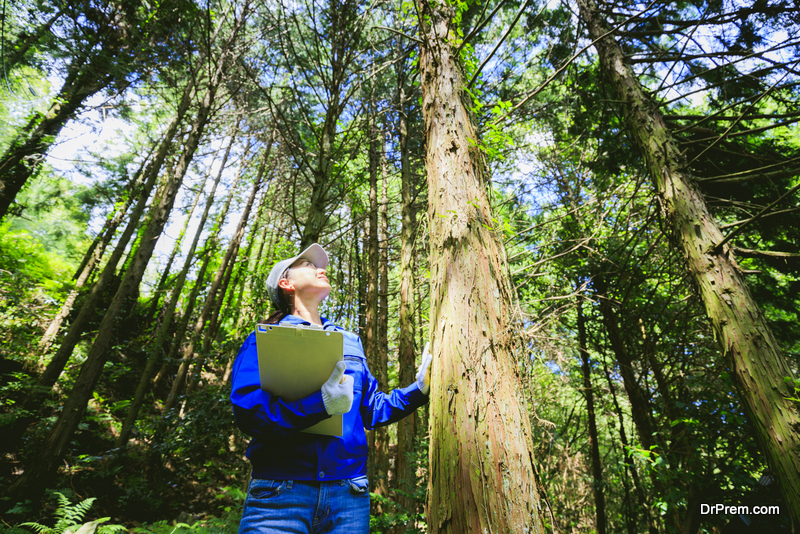If you consider yourself to be an environmental warrior eco-conscious person, then you might have considered focusing your career around making the world a greener place. The good news is there are a number of jobs available in this industry. As governments around the world become increasingly focused on sustainability, there are no shortage of routes to explore. You could look into conservation roles which allow you to play a part in protecting certain species of plants or animals. Or you could get started with environmental science and explore opportunities for making the world a more sustainable place. Here are a few steps you’ll need to consider to follow this path.
1. Find the Right Degree
![]()
Many lucrative careers in the environmental landscape will require at least some form of higher education. The good news is it’s relatively easy to find the right classes today, with many new options appearing from colleges all the time. You should also be able to find funding in a range of different spaces, like using student loans to pay for college. The key to success is choosing the right degree to spend your funding on. An environmental science degree is often a good option if you’re looking into roles in agriculture or conservation. However, you can also look into things like geography, science, and business. Perhaps the best way to ensure your honing the right skills is to look for the job listings available for the kind of career you want. What kind of certifications are employers looking for most?
2. Cultivate Desirable Skills
While many of the best roles will require a degree of technical knowledge in a specific field, it’s important to remember your employer will usually look beyond your education to determine if you’re right for a role. The best environmental professionals often need a range of soft skills, including enthusiasm for their cause and industry. You’ll need good project management skills, as resources and time are allocated to specific campaigns which you’ll need to adhere to. It’s also valuable to be well-suited to working as part of a time, as there’s a good chance you’ll need to collaborate with other industry professionals. Having a decent level of physical fitness might also be helpful if you’re pursuing a job which might take you outdoors a lot.
3. Work on Developing Experience

Some specialist degrees will come with placements during the course so you can enhance your understanding of a specific area. However, if you don’t get this included as part of your training, you’ll need to look for ways to gain experience elsewhere. Often the easiest strategy is to start with volunteering in your spare time. There are a lot of non-profit environmental groups out there constantly looking for help from people who can help with conservation, horticultural, and management tasks. Though these ventures might not provide you with an income, they will deliver essential training and guidance for your career. Don’t be afraid to consider internships too, as they can often lead to fantastic long-term opportunities and jobs.
Article Submitted By Community Writer


